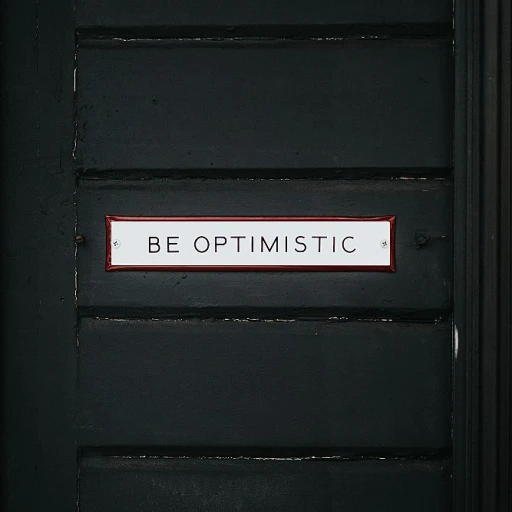The Growing Demand for Background Checks
Witnessing an Ascend in Background Check Demand
In today's society, the necessity for performing background checks has surged significantly. This demand is driven by a combination of factors such as heightened awareness of security risks and the desire for peace of mind. Private investigations play a pivotal role in fulfilling this need as they offer specialized investigative services that gather critical evidence often required in custody cases or missing persons scenarios. From an employment perspective, hiring private investigators to conduct thorough checks can help companies mitigate risks associated with bringing on new employees. It's particularly crucial when considering roles that handle sensitive information or require a high level of trust. Moreover, recent changes in background screening regulations have amplified the importance of adhering to legal and ethical standards, ensuring that investigations are both compliant and reliable (source). The appeal of engaging private investigators isn't confined to corporate environments. Individuals also lean on these professionals to assist with personal matters like child custody cases, where unearthing reliable evidence can weigh heavily on the outcomes of custody decisions. However, the growing reliance on private investigations invites potential risks which include concerns about privacy and the legality of certain investigations. As the demand intensifies, prospective clients must be wary of unlicensed private investigators who may not adhere to legal and ethical guidelines. Therefore, thoroughly vetting the background of any investigator will remain an essential task for those considering these services.Legal and Ethical Concerns
Balancing Legal Standards and Ethics
When engaging a private investigator, it is crucial to stay mindful of the legal and ethical boundaries surrounding their work. The field of private investigations is not exempt from these concerns, and hiring a private investigator involves understanding applicable privacy laws and regulations, which can vary significantly depending on the jurisdiction. First and foremost, any investigative services must comply with the law. Private investigators must conduct their cases within legal frameworks to avoid potential liabilities. Engaging in illegal activities, such as unauthorized surveillance or hacking, can have serious consequences for both the investigator and the client. Additionally, there are ethical implications to consider. The private investigator will often handle sensitive information, which raises questions about the invasion of privacy and consent. For instance, in child custody cases, the ethical approach should include only gathering evidence that is publicly accessible and relevant to the child’s well-being. Here are several key points to consider:- Compliance with Privacy Laws: Ensure that any private investigations undertaken adhere to local privacy regulations to avoid legal complications.
- Professional Conduct: Hiring private investigators who hold themselves to high ethical standards is critical in maintaining the integrity of the investigation.
- Licensing and Credentials: Check that the investigator is licensed and possesses the necessary credentials required for legal work in their area of operation.
Accuracy and Reliability of Information
Ensuring Information Accuracy and Reliability
When considering the hiring of a private investigator, understanding the accuracy and reliability of the information provided is crucial. Far too often, the details uncovered during background checks can severely affect personal and professional lives, especially in sensitive situations such as child custody cases or legal proceedings. Private investigators employ various methods to gather evidence, but it's important to verify that the investigative service you consider hiring adheres to both legal and ethical guidelines. This is vital for ensuring all information is gathered and reported properly, minimizing risk in sensitive cases.- Child Custody and Legal Matters: Information utilized in custody
- Ethical Investigation Standards: An investigator will collect data
- Reputation and Evidence Validity: Aligning with experienced
Financial Implications
Considering the Financial Impact of Engaging a Private Investigator
Engaging a private investigator can result in significant financial implications, influencing your decision-making when hiring professionals for background checks or other investigative services. Many individuals may overlook these aspects in the initial stages of considering investigative services, focusing instead on the immediate goal, such as gathering evidence for a child custody case or achieving peace of mind in a high-stakes situation. When you hire private investigators, you are not only paying for their professional expertise and investigative work but also for additional expenses that may arise during their investigations. These costs can vary depending on the complexity of the case, the need for specialized equipment, and the duration of the investigation. Understanding these potential costs can help you better prepare financially and avoid unexpected expenses.- Investigation Complexity: More complex investigations requiring extensive resources and longer periods of work will generally lead to higher costs. For instance, investigations into missing persons or cross-border investigations may involve substantial additional expenses.
- Expense Variability: Costs can also vary significantly based on the types of surveillance or background checks required. Performing comprehensive checks, adhering to legal and ethical standards, and ensuring privacy laws are respected might necessitate specialized skills, impacting the overall fees.
- Professional Fees: Private investigators may charge by the hour or on a flat-fee basis, depending on the scope of their services. As such, the financial obligation can rise quickly if the investigation's complexity demands extended hours.
Reputation and Trust Issues
Impact on Professional and Personal Reputation
When deciding to hire a private investigator, potential risks to both professional and personal reputation are important to consider. Engaging in private investigations, especially in sensitive matters like child custody cases, can lead to public exposure if not handled discreetly. Legal and ethical concerns surrounding privacy laws highlight the necessity for due diligence when choosing an expert for your case.
One must weigh the risks of hiring private investigators carefully. Hiring private investigators without verifying their credentials could lead to employing someone unlicensed. This not only poses legal ethical issues but may also damage your credibility. Clients must be assured that any investigator will handle their custody case or investigation with professionalism and confidentiality. However, even with the best intentions, the nature of private investigations means there are inherent risks.
The potential fallout from mishandling investigations or breaching privacy laws can affect your standing with employers, family, or in child custody matters. Trust issues may arise if an investigation is perceived as overly intrusive or unjustified, further emphasizing the importance of choosing experienced, qualified professionals to gather evidence discreetly.








